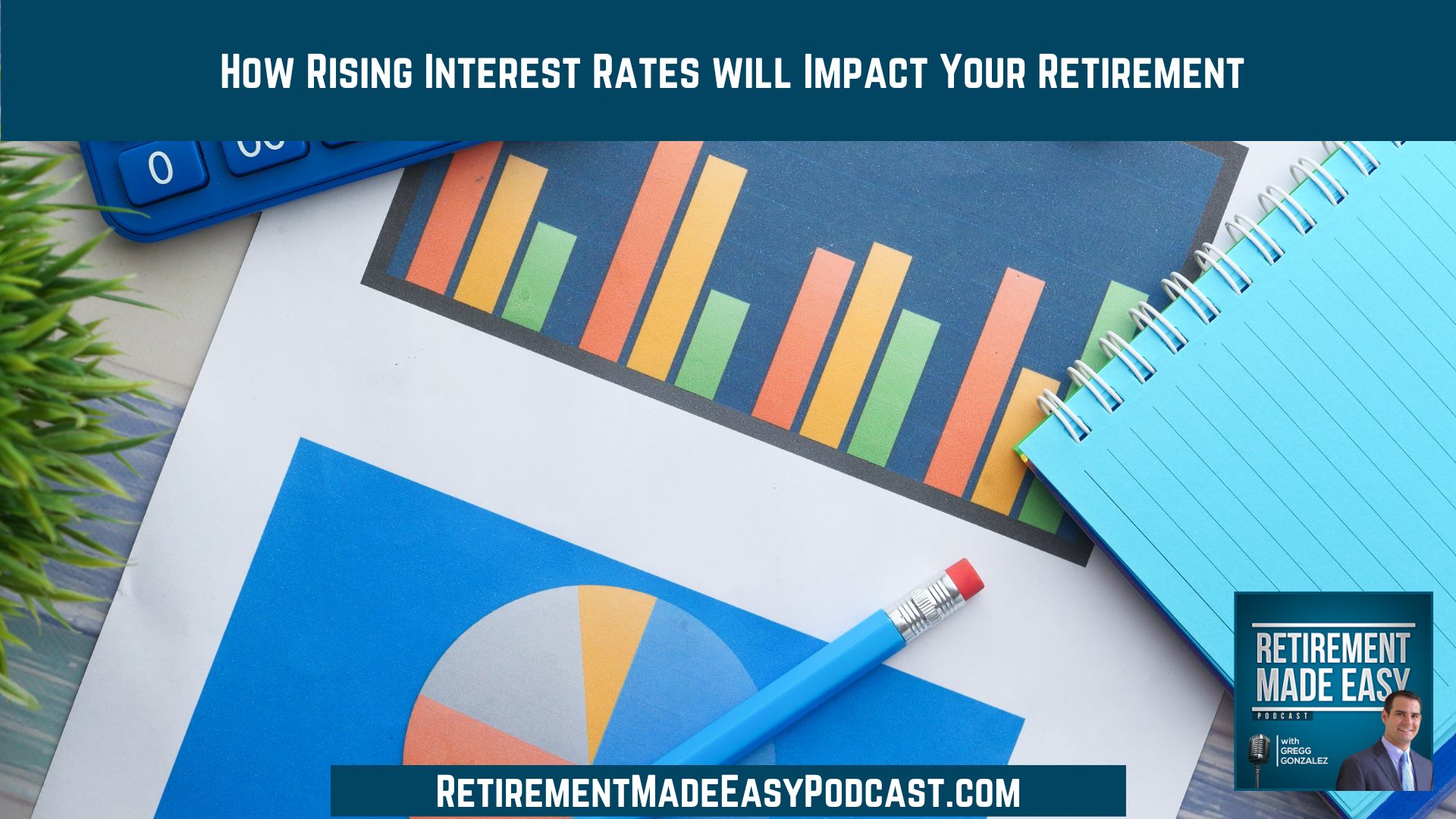
What is forcing people to retire by the end of 2022? What’s happening to corporate pensions? What’s changing with social security because of inflation? Rising interest rates are making an impact on the economy—and your retirement. Find out how in this episode of Retirement Made Easy!
You will want to hear this episode if you are interested in…
- [1:20] Book a FREE retirement coaching call!
- [2:11] The changes happening with social security
- [6:04] Medicare Part B premiums were raised too much
- [7:38] How interest rates are impacting pension lump sum buyouts
- [13:48] Don’t leave money on the table by waiting to retire
- [15:45] Let’s get your retirement action plan in place
What’s changing with social security?
Every October, the social security administration announces what the cost of living increase will be for the next calendar year. In 2021, they announced a 5.9% increase for 2022 (to match inflation). Social security just announced that the cost of living adjustment will be 8.7% in 2023!
The last time we saw inflation higher than 8.7% was 1982 when they raised the cost of living adjustment to 11.2%. In 1981, it went up 14.3%. In 1980, it was 9.9%. It’s been 40 years since cost of living adjustments have been this high.
Higher interest rates slow down the economy. That’s why there’s a concern for a long recession. A 30-year mortgage is over 7% right now. If you got a 30-year mortgage in 2021 with an interest rate of 2.5%, a payment on a $500,000 home would be around $2,000 a month.
In 2022, the monthly payment is $3,300—an increase of $1,300 a month—just because interest rates went from 2.5% to 7%. It’s more expensive to borrow money, so people will borrow less and it will slow down the economy.
How pensions are impacted by high interest rates
There is a huge danger when you’re living on a fixed income and your pension does NOT have a cost of living adjustment). When costs go up 8.7%, you’re still only getting $2,000 a month. Let’s assume you worked 30 years for Ford and you are entitled to a pension. You’re offered $55,000 a year for the rest of your life OR a lump-sum check option. So instead of the fixed pension, you get a lump-sum buyout in the form of $1 million. You can roll it into a 401k or IRA to control how the money is invested.
How is it impacted by interest rates? Most lump-sum buyouts are based on interest rates. The higher the interest rate, the lower the lump-sum buyout. So lump sums being offered by pension plans are lower.
Because of this, three senior executives at KFC are retiring early before higher interest rates go into effect in December, decreasing the lump sum of their pensions. They can get a higher buyout check versus working longer into 2023 and losing thousands of dollars. Makes sense to retire early, right?
Don’t leave money on the table by waiting to retire
Timing your exit into retirement is tough with rising interest rates. The transition isn’t easy, no matter what, but especially when it’s unplanned. Because the transition can be depressing, many people are moving into semi-retirement and working part-time or taking on a consulting job. It won’t be the same amount of pay, but in most instances, your stress levels will decrease.
Resources & People Mentioned
Connect With Gregg Gonzalez
- Email at: Gregg@RetireSTL.com
- Podcast: https://RetirementMadeEasyPodcast.com
- Website: https://StLouisFinancialAdvisor.com
- Follow Gregg on LinkedIn
- Follow Gregg on Facebook
- Follow Gregg on YouTube



